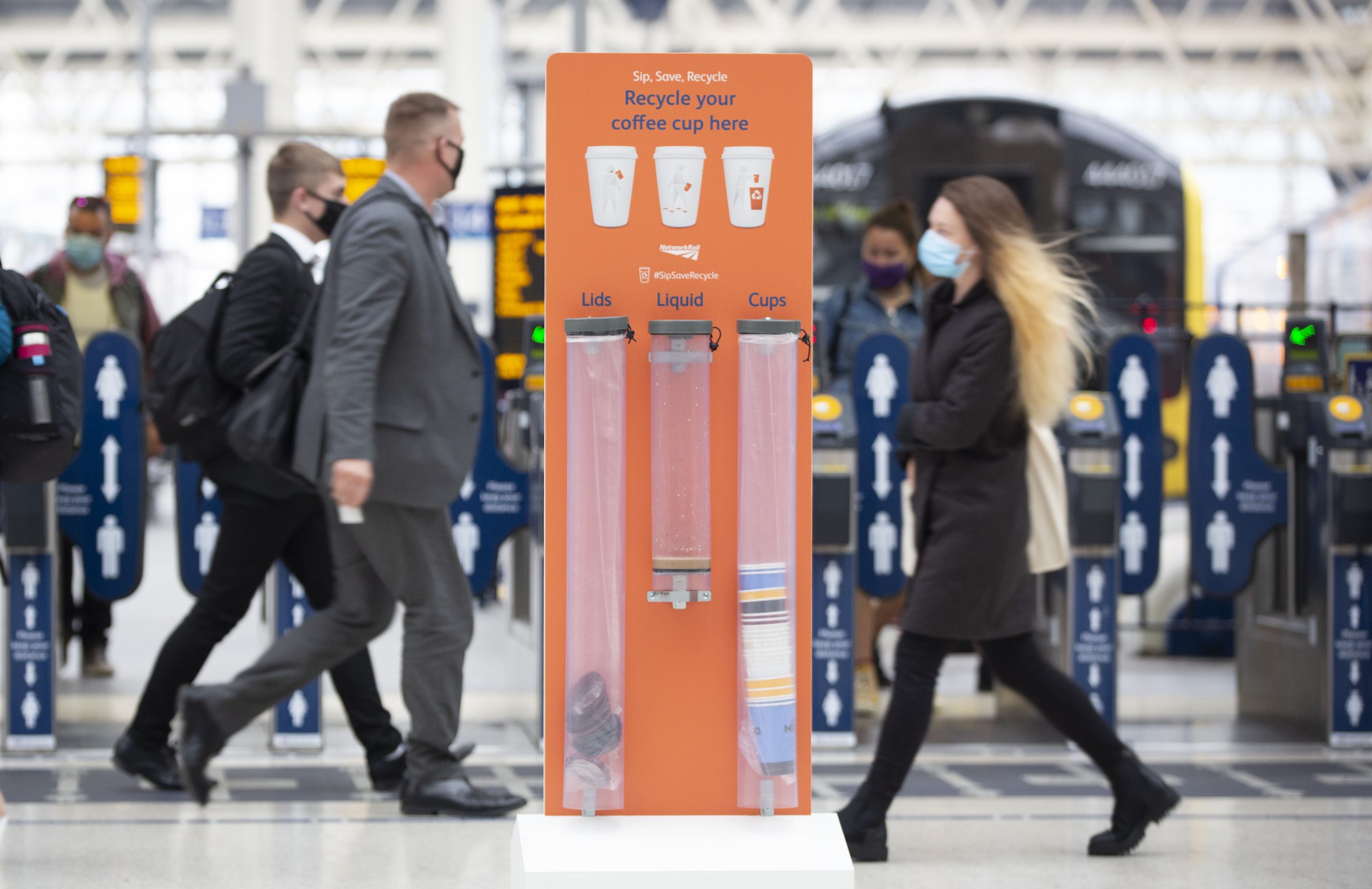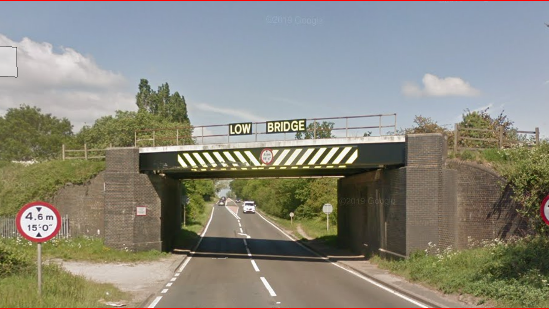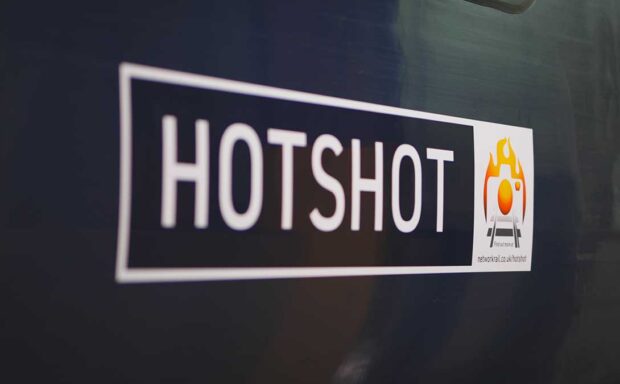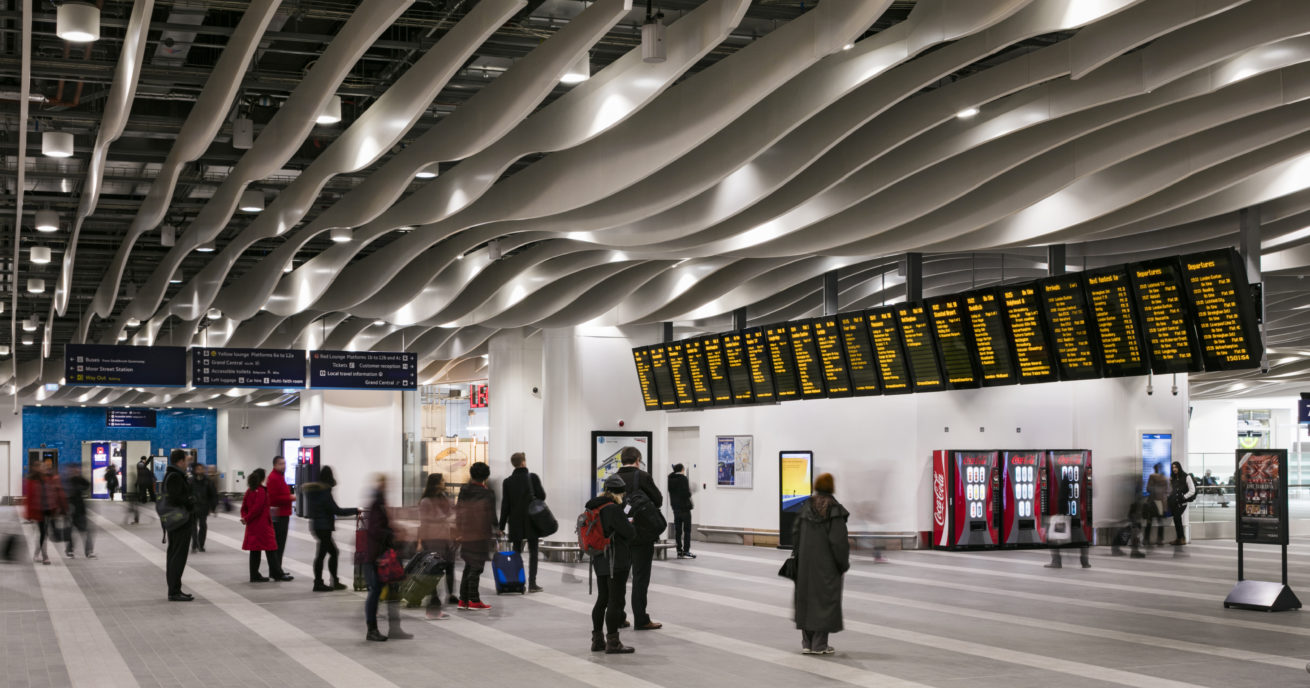We’re sharing some of our recent efforts to reduce waste across the railway …
Reuse, recycle or redeploy
We’re aiming to reuse, recycle or redeploy all our nonhazardous infrastructure materials by 2029.
Running Britain’s railway produces a lot of waste – 2.1 million tonnes in
2018 to 2019 in fact.
We have to use less and manage unavoidable waste better. We have a huge opportunity to contribute to a more circular economy. This means extracting fewer virgin resources from the planet, and keeping materials and resources in circulation and waste to an absolute minimum. This action will also help us significantly reduce our carbon
emissions.
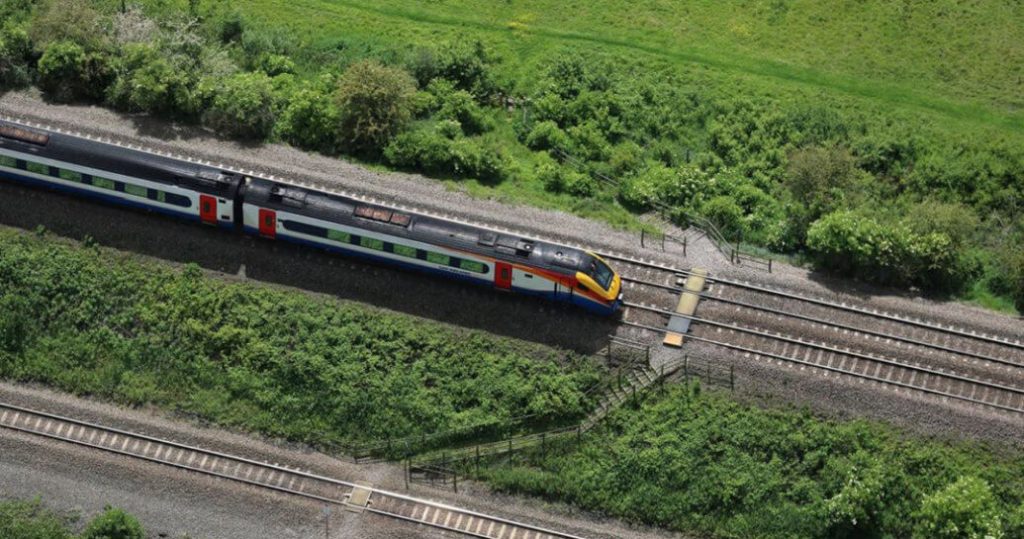
Meanwhile, in October we took a major step forward in tackling climate change by becoming the world’s first railway company to set the most ambitious science-based targets to limit global warming.
Science Based Targets Initiative, backed by the United Nations, independently verified our targets and our plans to achieve them. It means we’re the first railway company to commit to cutting emissions which limit warming to 1.5 degrees Celsius. That’s even less than the two degrees scientists declared necessary to meet the Paris Agreement, a global framework to avoid dangerous climate change.
Sip, save and recycle
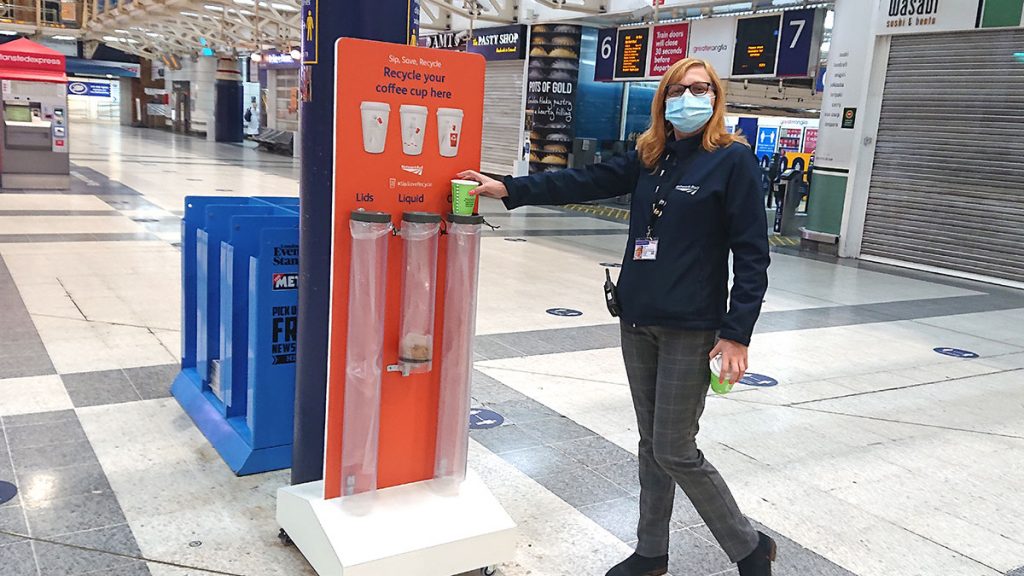
In September, we encouraged coffee-loving commuters to ‘sip, save and recycle’ their cups at Britain’s biggest and busiest railway stations.
We rolled out our first coffee cup recycling bins at London King’s Cross, Leeds, London Bridge, Waterloo, London Liverpool Street, London Charing Cross and London Cannon Street.
You can use the bright orange bins to recycle any paper coffee cups during your journey. The recycled cups are turned into up-cycled reusable cups and other products, including tissue and packaging. This encourages a circular economy as well as reduces waste.
We teamed up with environmental charity Hubbub to then install specially designed bins at all the railway stations we own and directly manage, including Birmingham New Street, Bristol Temple Meads, Edinburgh Waverley and Manchester Piccadilly.
Laptops for schools
We launched a scheme to support children learning from home and reduce waste!
In January, we shared how we’d donated laptops to a school in Manchester. Volunteers at Network Rail designed a scheme to donate old laptops to children across Britain in desperate need of a device to help with their school work.
The project aims to donate more than 8,000 laptops to schools in Britain over the next year.
Nominations for schools from Network Rail employees are processed by a team of volunteers who work with the schools to deliver this initiative.

All change at Swansea
Construction of a new, longer platform four at Swansea railway station got underway in March after a month of demolition work to remove and recycle the old one.
The new platform will be 260m long, 13m longer than the original, to allow train operator Great Western Railway’s new Intercity Express Trains to arrive and depart from it. It forms a key part of plans to modernise the station and improve the experience for passengers.
To make way for the new structure, contractor Alun Griffiths removed 2,400 tonnes of demolition waste from the site. It took steel to recycling centres in Swansea and Bridgend, and concrete to the Alun Griffiths recycling centre in Llanelli.
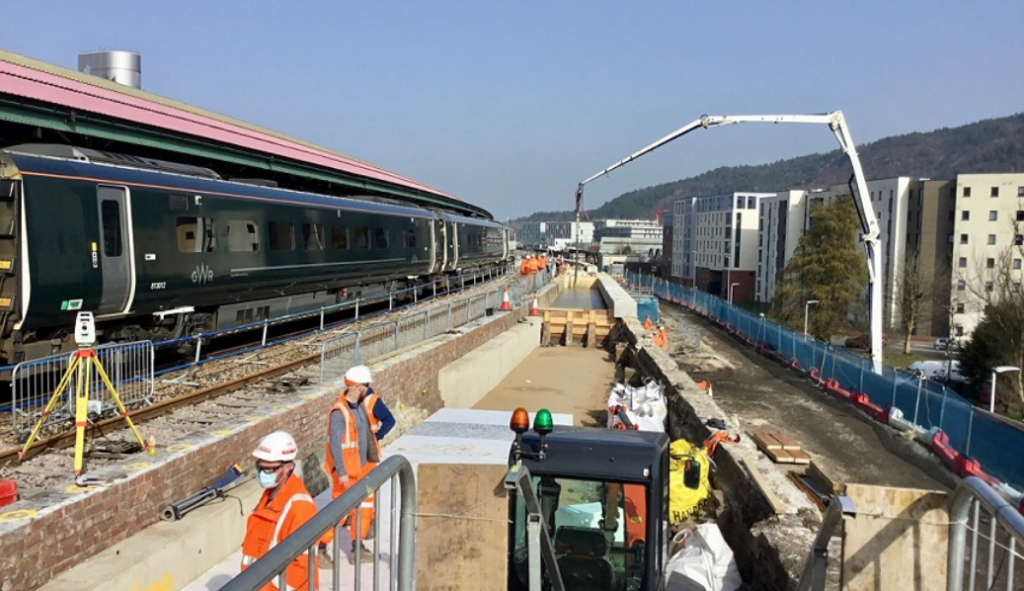
Our progress in numbers
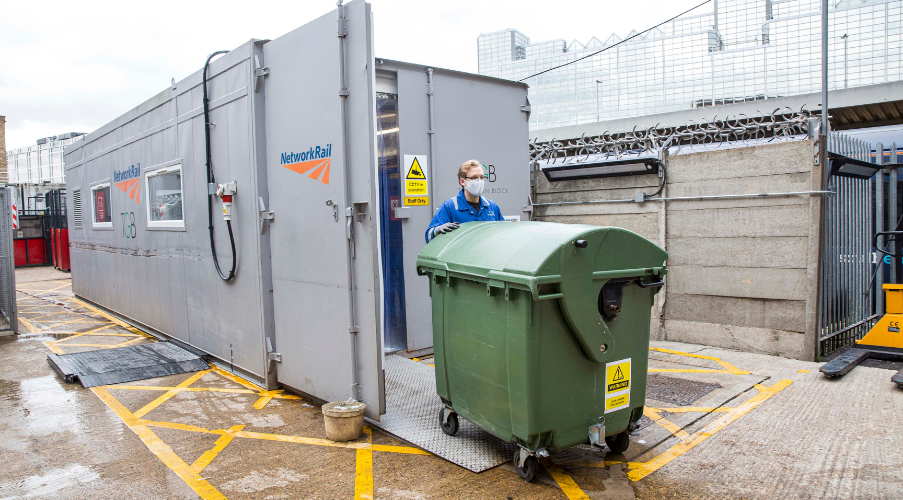
So far in the 2020 to 2021 year we have achieved:
- 1,006,377 tonnes recycled (70% of total waste) in total
- 1,182 tonnes recycled by the stations we own and directly manage
- 1,161 tonnes recycled by our offices
- 905,240 tonnes recycled by Route Services, which serves the needs of our various routes.
This includes:
- 67,103 tonnes of recycled rail
- 80 tonnes of recycled concrete sleepers
- 69,879 tonnes of recycled ballast – the stones on the track bed.
Read more:
Sustainable development at Network Rail
